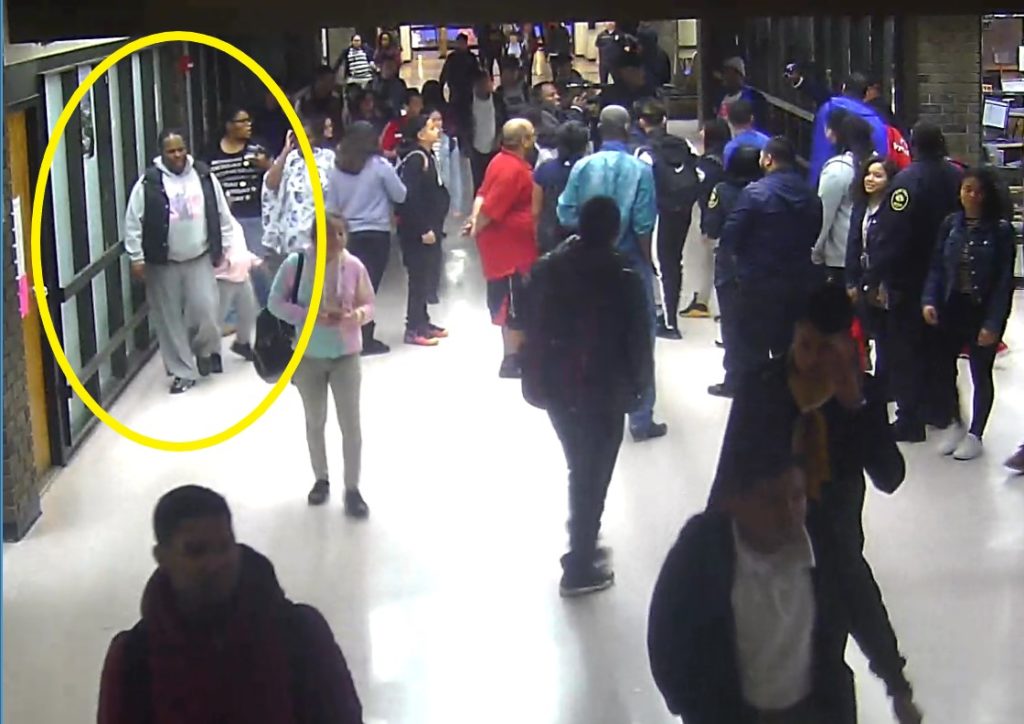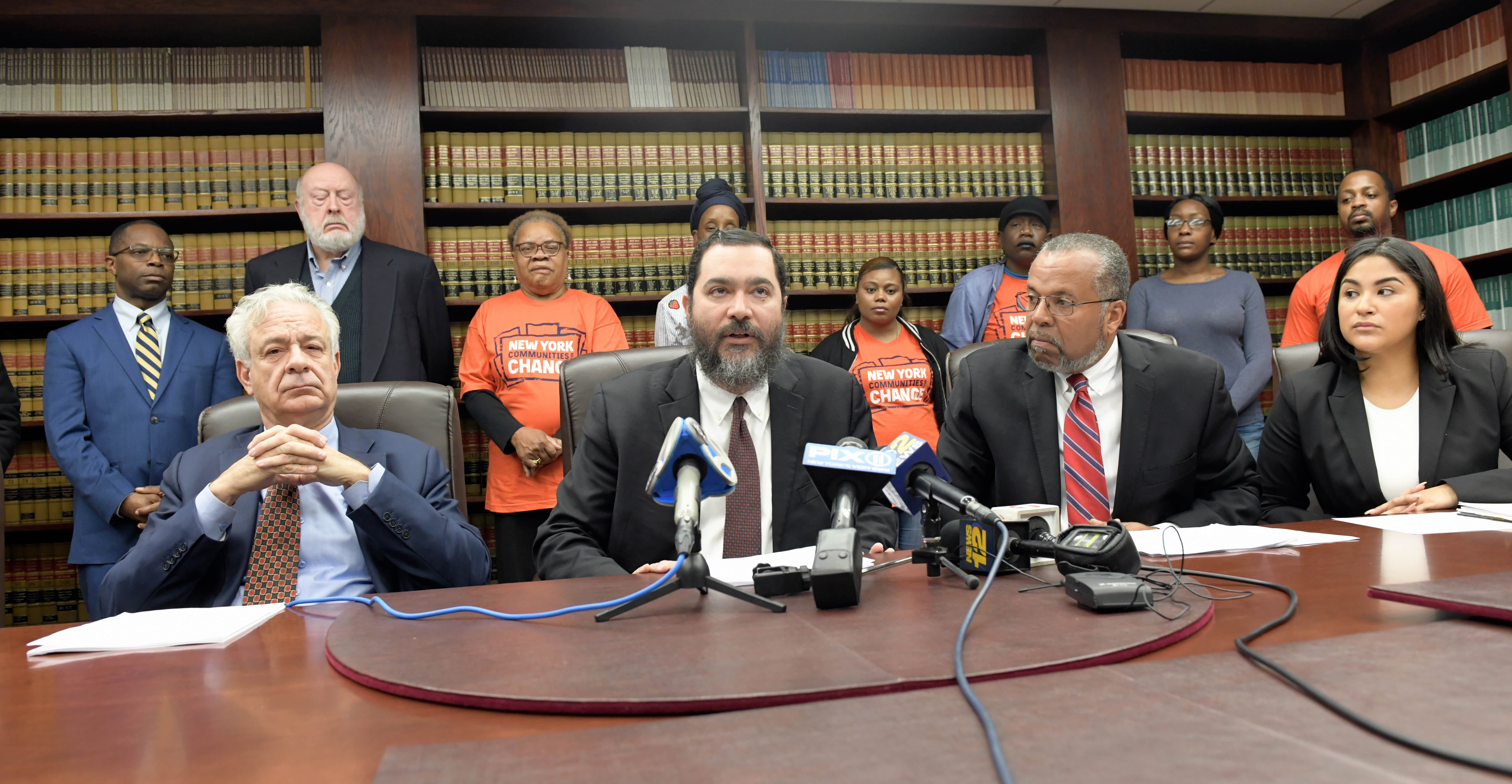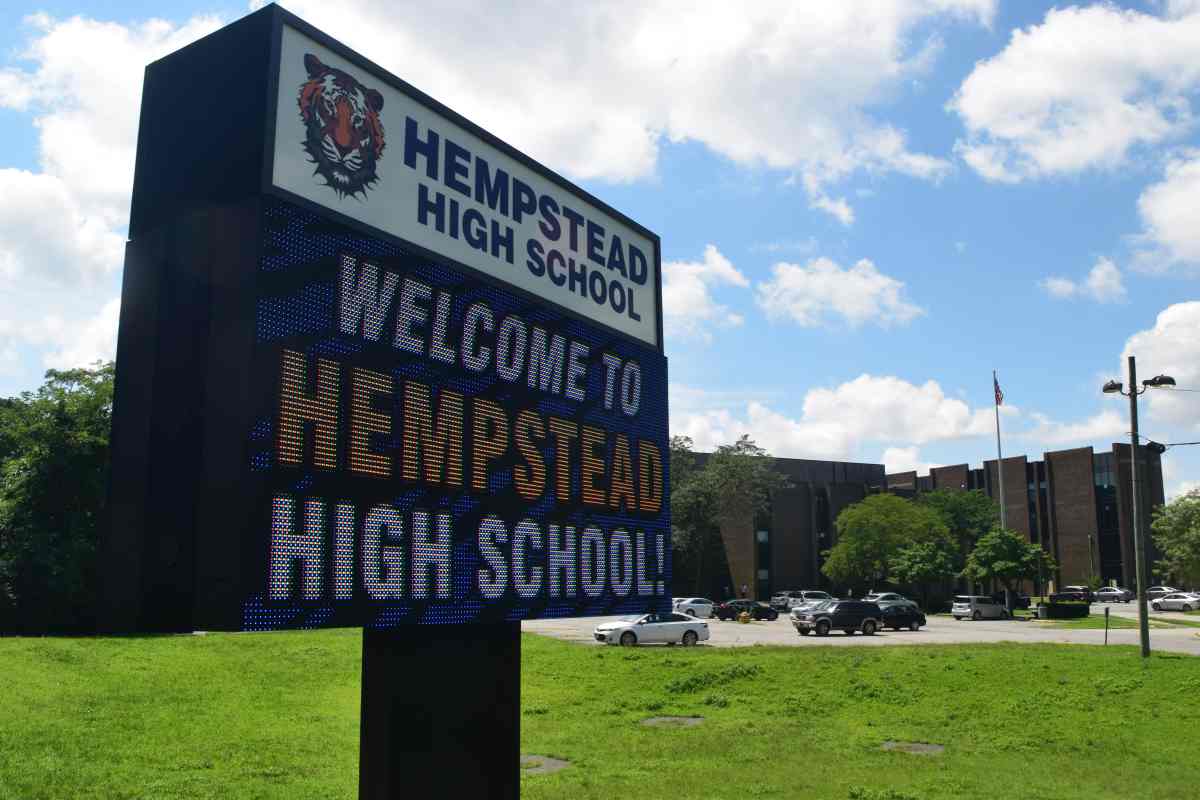It was the best of schools, it was the worst of schools.
U.S. News & World Report ranked Garden City High School among the nation’s top 300 high schools and its football team, the Trojans, is grabbing headlines for its two-year winning streak. Three miles away at neighboring Hempstead High School, the graduation rate was until recently among the lowest in the nation, 37 percent, which made it the subject of a CBS 2 News documentary about the school administration’s long-festering corruption. Now, as New York State lawmakers await word on whether Gov. Andrew Cuomo will sign or veto a bill creating an oversight panel to help fix the Hempstead School District’s troubled finances, a convicted pedophile regularly roams its school grounds while class is in session, documents obtained by the Press show.
“We can’t turn a blind eye to these children,” says Melissa Figueroa, a former Hempstead School District board member pushing for reforms in the district that the state has termed “persistently struggling.”
Hempstead is not the only troubled school district on Long Island. The Wyandanch School District suspended its superintendent this summer and its athletics program was saved just before the school year by donors. And a handful of other districts have come under state scrutiny for their fiscal practices. But what sets Hempstead apart are the deep-seated issues that have been entrenched for decades and the routine infighting that stifles reforms.
Backing the current Hempstead School District board majority is a group called Hempstead for Hempstead, whose self-proclaimed founder is Thomas Parsley, a former Hempstead school board member who was removed from the post in 2004 after being convicted of stealing a principal’s debit card and withdrawing $500. In 2010, records show, he was convicted of sexual misconduct against a 15-year-old boy, sentenced to a year in jail, and ordered to register as a level-three sex offender — the classification given to those at the highest risk of recidivism.
Sex offenders can be barred from being on school grounds as a condition of their release, but law enforcement sources confirm that Parsley is no longer on parole. Video surveillance footage obtained by the Press shows Parsley freely walking the halls of the school, chatting with campus security and school officials. Although he’s allowed to be there, the district terminated its use of Arrow Security after ABC 7 News reported that one of the company’s guards was also a level-three sex offender not on parole working evenings at Hempstead Middle School while waiting for his license to be approved.
Parsley could not be reached for comment. The current school board did not respond to a request for comment.

SEMESTER OF DESPAIR
Parsley isn’t the only convict with ties to the administration. Randy Stith is a disgraced ex-village cop who pleaded guilty this spring to criminal possession of a forged instrument and petit larceny in a plea deal that allows him to keep his elected school board membership. But the district’s issues don’t end at school grounds, either.
Nassau County prosecutors have also recently arrested three Hempstead village police commanders and a village trustee in an alleged bribery scheme. And Hempstead, the state’s largest village, has seen such an uptick in gang violence that state police were called in this summer to help patrol the streets. The same streets on which students are required to walk to school because the district doesn’t offer buses.
Of the District’s 7,600 students, some 70 percent come from families who receive public assistance; 40 percent are not proficient in English; and 10 percent are students with disabilities. Over the last decade, the school district’s enrollment has shifted to 70 percent Hispanic or Latino, 31 percent black or African American, and 2 percent white.
By comparison, the neighboring well-to-do, mostly white Village of Garden City — where the average household income is $137,788 annually, versus $94,158 in Hempstead — and its high-achieving schools seem like Shangri-La.
“Growing up in Hempstead, I immediately became very aware of various social, educational, and economic inequities,” says freshman Assemblywoman Taylor Darling (D-Hempstead), who was a lead sponsor of the bill that passed in June to create a three-member panel of Hempstead School District fiscal oversight monitors. “I could not understand how the largest village in the country had one of the worst-performing school districts. I could not understand how I received a phenomenal education a few miles away in the Uniondale School District.
“I could not understand how I could walk to Garden City from my home and immediately be transferred to nirvana — a place with beautiful green space, smooth roads, economic development, and a high-performing school district,” she continues. “Why was Hempstead struggling to survive while the surrounding areas were thriving?”
Asked if the governor intends to sign or veto the bill, a spokesman for Cuomo says, “The bill is under review.” The spokesman added that the 10-day clock for the governor has not yet started because his office has not received the bill. Darling says that’s because the governor’s office has not yet requested the bill be formally sent to his office.
All bills passed during the legislative session have to be acted on by the governor before the end of the calendar year. If the governor does not act within 10 days after requesting and receiving a bill, the bill automatically becomes law.
Among those who sent letters of support urging the governor to sign the bill are Long Island Association Vice President of Government Affairs & Communication Matthew Cohen, U.S. Rep. Kathleen Rice (D-Garden City), and Rockville Centre School District Superintendent William Johnson.
“Corruption, mediocracy, irresponsibility, lack of leadership, and the failure by the state of not doing the right thing for supporting the rights for the thousands of children ‘without a voice’ has occurred for years,” Gil Bernardino, executive director of the nonprofit Circulo de la Hispanidad, also wrote in support of the bill. “This situation would not happen in other school districts like those surrounding this district: Garden City and Rockville Centre.”
The Hempstead School District board has been on record opposing the measure, which would give the oversight panel veto power over spending.

WHAT’S BEFORE THEM?
The push for more oversight in Hempstead schools comes amid changes in leadership locally and at the state level.
State Commissioner of Education MaryEllen Elia resigned last month to take a new job and her replacement was not named as of press time. And the Hempstead school board elevated Regina Armstrong from the title of acting superintendent to interim superintendent following the board’s controversial firing of reform-minded superintendent Shimon Waronker last year.
Waronker maintains that his firing was retribution for trying to clean up what he referred to as a “cesspool” of corruption he uncovered during his brief tenure — findings he referred to law enforcement. He sued to get his job back but lost and the district filed administrative charges against him, but has yet to schedule a hearing on the issue.
A state-appointed monitor, Jack Bierwirth, credited the district with making some progress, but noted that it could take five to 10 years for a true turnaround to occur. The district says it increased its graduation rate to 61 percent, which is still below the national average of 84 percent and Long Island average of 90 percent.
Will the Hempstead School District’s board graduate to a functioning entity before it’s too late? Stay tuned.


































